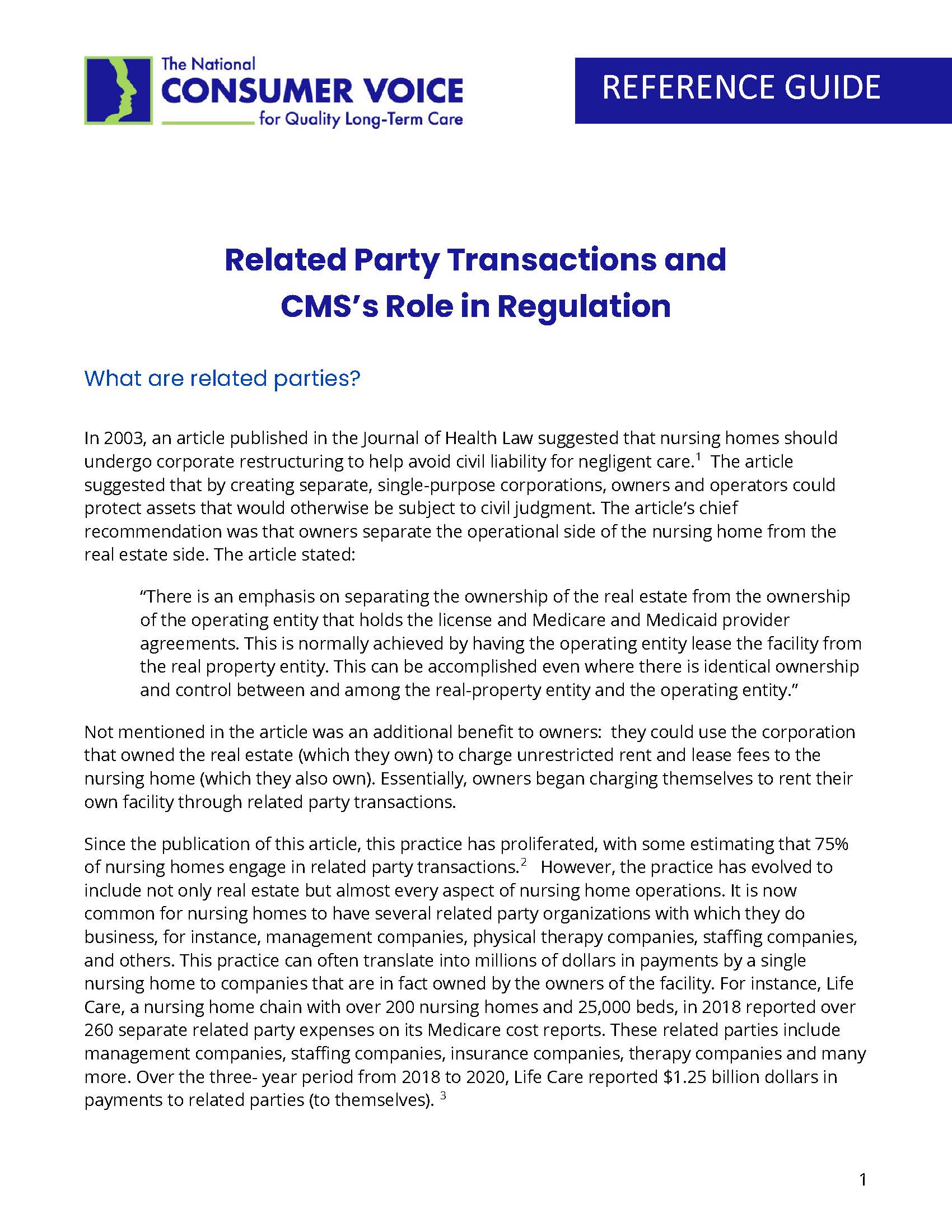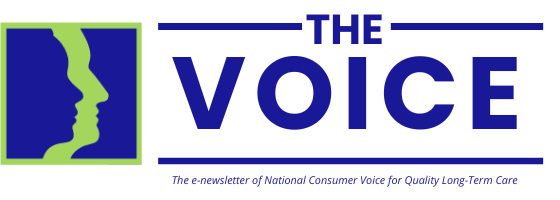|
New Reference Guide on Related Party Transactions
 Consumer Voice has published a new reference guide, Related Party Transactions and CMS's Role in Regulation. Each year, nursing homes funnel Medicare and Medicaid dollars meant for nursing home resident care through companies they own with little to no scrutiny on how this money is used. In the early 2000s, nursing home owners began creating separate, single-purpose corporations to avoid civil liability for negligent care. An additional benefit of this practice for owners was that they could use the corporation that owned the real estate (which they own) to charge unrestricted rent and lease fees to the nursing home (which they also own). This practice was expanded upon even further as companies set up several related party organizations with which they do business, for instance, management companies, physical therapy companies, staffing companies, and others. This practice can often translate into millions of dollars in payments by a single nursing home to companies that are in fact owned by the owners of the facility. According to some estimates, 75% of nursing homes engage in related party transactions. Consumer Voice has published a new reference guide, Related Party Transactions and CMS's Role in Regulation. Each year, nursing homes funnel Medicare and Medicaid dollars meant for nursing home resident care through companies they own with little to no scrutiny on how this money is used. In the early 2000s, nursing home owners began creating separate, single-purpose corporations to avoid civil liability for negligent care. An additional benefit of this practice for owners was that they could use the corporation that owned the real estate (which they own) to charge unrestricted rent and lease fees to the nursing home (which they also own). This practice was expanded upon even further as companies set up several related party organizations with which they do business, for instance, management companies, physical therapy companies, staffing companies, and others. This practice can often translate into millions of dollars in payments by a single nursing home to companies that are in fact owned by the owners of the facility. According to some estimates, 75% of nursing homes engage in related party transactions.
Critically, related parties can serve to mask profits. When high amounts are paid to the related party, the nursing home looks much less profitable, even though they are paying the nursing home owners themselves. As a result, nursing homes can assert that their facilities are not making a profit, or are even losing money, when high amounts are being paid to related party companies.
The Nursing Home Reform Act of 1987 provides the Secretary of Health and Human Services broad regulatory authority to ensure that Medicare and Medicaid dollars are spent appropriately. Additionally, the Medicare Provider Reimbursement Manual provides in-depth guidance as to how related parties must be reported. The Centers for Medicare & Medicaid Services (CMS) requires nursing home providers to be “prudent buyers." In other words, owners must not inflate costs paid to related parties but pay only what they would if they purchased the goods or services on the open market.
Consumer Voice recommends that CMS should:
- Require nursing homes to submit consolidated cost reports;
- Routinely review and audit cost reports;
- Require increased disclosure requirements for related parties to determine whether costs charged to nursing homes for goods and services are reasonable and prudent;
- Make information on cost reports more easily accessible to consumers; and
- Conduct targeted surveys of nursing homes with unreasonable and excessive related party transactions.
Read the full Reference Guide for more information.
|
|
ACL Releases Final Rule on Older Americans Act Programs
The Administration for Community Living (ACL) has released a final rule updating regulations for implementing Older Americans Act (OAA) progams. This is the first substantial update to most OAA program regulations since 1988. The updated regulations intend to "reinforce and clarify policies and expectations, provide guidance for programs authorized since the last update, promote appropriate stewardship of OAA resources, and incorporate lessons learned during the COVID-19 pandemic," according to the press release. The rule will take effect on March 15, 2024, and regulated programs must comply by October 1, 2025.
Join ACL for an informational webinar on the updated regulations on Thursday, February 8th at 2:00pm ET. Register.
|
